|  | |
 |
| Opening a new door to innovation for patients | An important moment in the future of research at Emory University occurred March 15 when a ribbon-cutting ceremony was held for the new Health Sciences Research Building II, the largest facility of its kind in Georgia.
Emory provides patients with exceptional treatment by world-class providers who have access to the most advanced therapies available, which are frequently designed and discovered right here by our own investigators. This link between patient care and scientific discovery and innovation attracts exceptional learners and differentiates Emory within Georgia and beyond, lessening disease burden, keeping people healthy, and preparing the next generation of care providers.
Our Health Sciences Research Building II is designed to strengthen that linkage; to inspire connectivity, collaboration, and innovation; to remove boundaries; and to invite cross-disciplinary research with access to some of the most sophisticated equipment available today.
I’m so proud of the incredible promise of this facility and the ways in which it will facilitate collaboration and collegiality in service to the greater good and ultimately help Emory achieve its goal to become a top-10 research university. Congratulations and thanks to all who worked so hard to make this historic achievement possible.
Kind regards,
Ravi
Ravi I. Thadhani, MD, MPH
Executive Vice President for Health Affairs, Emory University
Executive Director, Woodruff Health Sciences Center
Vice Chair, Emory Healthcare Board of Directors
Please direct questions and comments to evphafeedback@emory.edu. | |
| |
| 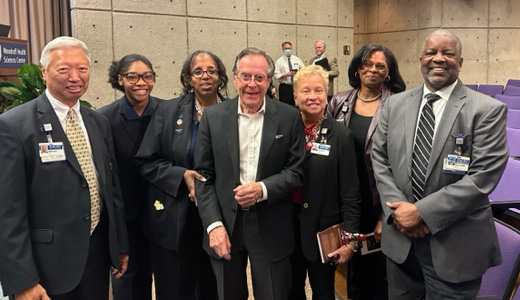 | | Horst Schulze with the Emory Healthcare Guest/Volunteer Services Team (l-r): Wilson Lee, Jermiya Tarrance, Shirley Spears Hopkins, Horst Schulz, Valerie Knight, Tracy Russell-Gonzalez, Sylvester Everhart. | Ritz-Carlton’s disruptive service philosophy in health care | Horst Schulze, co-founder of the internationally elite Ritz-Carlton Hotel Company, likes to keep things simple. As complex as it is to run a world-wide hotel company, Schultze learned early in his career that people – clients, customers, or patients – just need three things: an excellent product, timeliness, and the person with whom they’re dealing to be nice to them.
Schulze’s talk on excellence in patient service drew a capacity crowd to the WHSCAB Auditorium on April 12, and the Zoom broadcast served more than 1,000 across the WHSC and Emory Healthcare.
EVPHA Ravi Thadhani noted in his introduction that it was clear several staff and faculty members knew Schulze and warmly welcomed him. Schulze has a long history with, and an affinity for, Atlanta and Emory. He opened the first Ritz-Carlton in Atlanta, and he has spoken with numerous Woodruff Leadership Academy classes.
“My highest intention today is to actually give you something you can use,” he said. “I will tell you different stories and I hope you stay with me because they all come together. It’s about you, me, anybody. That’s what it’s all about.”
With his trademark enthusiasm and humor, each story that he told, from his youth in a small German town and his parents’ dismay at his desire to work in a hotel to his stories of running elite hotels on five continents, he reinforced these integral themes. “Customer service is not just for those who face the public; it also extends inside an organization to the people who work with each other.”
An early lesson from his youth was how a maître d’ instilled in every worker at every level how important their jobs were. “The chef can be the nicest person in the world, turning out great food, but if the waiter is rude to the guest, the chain breaks down.”
He spoke about an honor he received from Forbes and a presentation to hotel leaders from around the world. “When they introduced me, they all jumped up and applauded. But they weren’t recognizing me! They were applauding the image of Ritz-Carlton—the busboys, the bakers, the door man, because we had defined ourselves as excellent.”
As he walked back and forth on the WHSCAB stage in a crisp white shirt, a dark sport coat, and gray slacks, describing through engaging stories how his simple standards of professionalism reap great benefits, he spoke with intensity about how defining excellence begins within each individual.
“Very few people come to work to be negative. They come to contribute to a purpose. I learned that I can spend time in a beautiful place, take care of people, work with employees, help people, and positively impact their life.” He paused and pointed to his audience of health professionals. “Can you imagine how you can look at that? Wow. You’re helping people who need it more than anybody.”
He went on to tell his own story of his bout with cancer 29 years ago when he was told he had ten months to live. “At that time, in my whole soul, everything screaming, do you know how much it meant when I called the hospital, and they answered the telephone nicely? And what a gift you have here. Nobody needs it more! I serve to make people feel well. But you, you serve on a totally different level. In a way, I envy you. So, we must sit down and do what we do with high intent.”
Schulze closed his talk with a story about his daughter’s experience with cancer and how he talked with her about her higher intent and her vision. “We determined that her vision and her intent was to have a long and abundant life. So she wasn’t going to appointments for chemo, she was going to appointments for a long and abundant life. That is what vision is, it is your higher intent.”
Thadhani opened the question and answer period by asking about dealing with mistakes. Schulze spoke about how he regularly relied upon research from behavioral analysts from the University of Colorado and the University of Frankfurt. “Ninety-six percent of people who complain just want to get rid of their frustration. So, there are several steps. Listen and be interested. Show empathy. Apologize. We measure customer satisfaction. If it goes under 92 percent for two months, I move into the hotel and fix it.”
As Schulze answered additional questions, his energy and sense of humor were on full display. Subsequent stories illustrated the importance of internal customer care, helping Emory’s workforce to avoid burnout, and serving patients.
“You of all people have to understand the honor and privilege you have of helping people with the deepest needs that human beings have! They don’t know the knowledge that you have, they only know how you treat them!”
He graciously thanked everyone for listening and closed to loud and appreciative applause. | |
| |
| 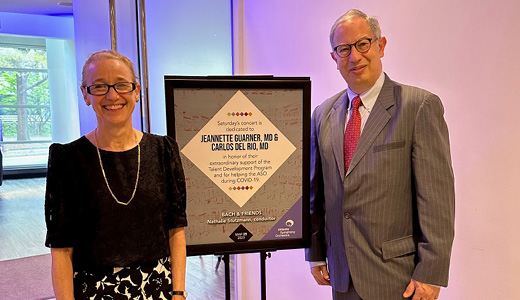 | Our People | Dr. Carlos del Rio, interim dean for Emory University School of Medicine and interim chief academic officer for Emory Healthcare, and his wife Dr. Jeannette Guarner, professor and vice chair for faculty affairs in the Department of Pathology and Laboratory Medicine and medical director of the clinical laboratory at Emory University Hospital Midtown, recently received an impressive and richly deserved honor. The Atlanta Symphony Orchestra (ASO) dedicated its concert on March 25 to the pair in recognition of their generous support of the symphony over the years, particularly the ASO Talent Development Program (TDP), which is one of the nation’s longest-running, year-round musical education diversity programs.
“TDP is a fantastic program that provides classical music education to 25 young Black and Latino/Hispanic musicians every year,” Dr. del Rio said. “Graduates of the TDP go on to graduate school at prestigious places like Julliard, which has led to careers in orchestra, teaching, and performance.”
In addition, the ASO also recognized Dr. del Rio for his expert medical guidance and support during COVID-19 which “allowed the music to continue despite the pandemic.” He also gave COVID-19 guidance to a wide range of other civic institutions and leaders, including the NCAA, Delta Airlines, Truist Bank, Cox Enterprises, and entertainment mogul Tyler Perry, and he received the Phoenix Award (the city of Atlanta’s highest honor) for his pivotal role in educating local leaders and the community throughout the pandemic.
Thank you, Carlos and Jeannette, for helping us – and the entire Atlanta community – improve lives and provide hope!
To nominate a colleague to be featured in an upcoming segment of Our People, please email me at evphafeedback@emory.edu and let me know what makes them special. | |
| |
| 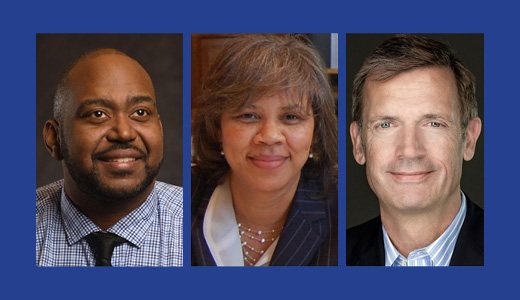 | DEI Update | Treating trauma across a lifespan was the topic of the 2023 annual Hamilton E. Holmes, MD, Memorial Lecture. Panelists during this year’s virtual lecture included (pictured above l-r) Antonio Graham, assistant professor of medicine and geriatrics, Emory SOM; Veda Johnson, Marcus Professor in General Academics and Pediatrics, Emory SOM, and director of PARTNERS for Equity in Child and Adolescent Health; and John Constantino, chief of behavioral and mental health at Children’s Healthcare of Atlanta and professor of psychiatry and behavioral sciences at Emory SOM.
Hosted annually by the SOM, the 2023 Hamilton E. Holmes, MD, Memorial Lecture honors the first Black student to graduate from Emory SOM. The three Emory experts shared lessons they’ve learned about treating and helping others move beyond trauma. “It’s not that we don’t have to try to change systems and structures; we do,” said Graham. “But our power is in one-on-one interactions.” | |
| |
| 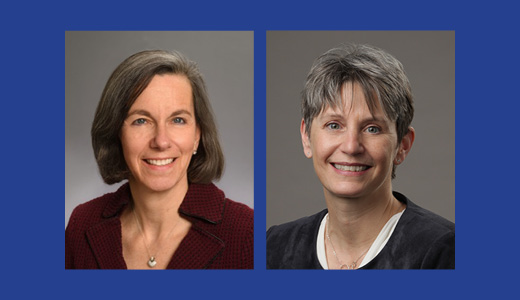 | Inaugural issue of Intersections: The Education Journal of the WHSC | The WHSC is proud to announce the first edition of Intersections: The Education Journal of the Woodruff Health Sciences Center. The peer-reviewed journal will serve as a resource for educational scholarship at Emory by: providing a forum for dissemination of health sciences related educational scholarship in all its forms; supporting a diverse cadre of health science educators in refining their scholarship, writing, and reviewing skills; contributing to the evidence base for best teaching and learning practices across disciplines and educational settings.
Linda Lewin (above left), professor of pediatrics and co-director of the Woodruff Health Educators Academy (WHEA); and Kathryn Garber (above right), associate professor of human genetics, are co-editors. “We have had a dedicated team of educators, physicians and researchers working to bring this exciting publication to life for more than a year,” says Lewin. “Our editorial board is committed to providing a platform for recognizing diverse voices and viewpoints and supporting educational approaches to achieve an inclusive, equitable, and diverse healthcare, health sciences, and public health workforce.”
The WHEA will host an introduction to Intersections on May 1 in the WHSCAB Lobby from 5 p.m. – 6:30 p.m. The event will include presentations, refreshments, and networking. RSVP here. | |
| |
| Drug development symposium helps Emory researchers bridge the gap from bench to bedside | Emory researchers have frequently had more success in developing new drugs than in bringing them to market. To address the persistent challenges of taking new drugs from lab to bedside, the Department of Pharmacology and Chemical Biology at Winship sponsored a one-day symposium on April 13. In addition to offering industry and academic leaders a chance to share their drug discovery and development work in multiple therapeutic areas, it also gave researchers a chance to directly interact with experienced drug discoverers and developers, learn about the challenges of bringing new drugs to market and learn about Emory’s multiple resources to help overcome those obstacles.
Executive Vice President of Health Affairs Ravi Thadhani recalled his own personal difficulties finding development financing for something as beneficial as drugs to treat pre-eclampsia in pregnant women. George Painter, executive director of the Emory Institute for Drug Development (EIDD), discussed the DRIVE (Drug Innovation Ventures at Emory) model, expressly designed to bridge the gap in perspective and priorities between academic scientists with complex and demanding research, teaching and serving responsibilities, and pharmaceutical drug development firms, with their intense focus on executing business plans on schedule and dealing with unforeseen problems.
The keynote speaker, Shaomeng Wang, professor at the University of Michigan and director of the Michigan Center for Therapeutic Innovation, emphasized the importance of not trying to compete with big pharma with its extensive resources, and working for the long term. Teamwork needs to occur not just within teams, but across them, choosing drug targets carefully, but also working on a number of targets at any given time. Less promising drugs need to be triaged early, he said, in favor of those likely to have the most impact. | |
| |
|  | | O. Wayne Rollins Foundation Gift Expands Seavey Clinic Mission | The Paul W. Seavey Comprehensive Internal Medicine Clinic is a special place. Stellar clinicians provide personalized patient care while pursuing research and teaching future doctors and nurses about the intricacies and importance of internal medicine. The O. Wayne Rollins Foundation was integral in launching the Seavey Clinic in 2013. Now the foundation has made a gift that expands the clinic—and its emphasis on academic internal medicine—to at least two additional sites. The gift funds 14 additional Rollins Distinguished Clinicians, bringing the total to 18, and expands the existing Seavey Clinic model to sites at Emory University Hospital Midtown and 1525 Clifton Road. The multisite expansion is known collectively as the Academic Internal Medicine Center.
| | |
| | | 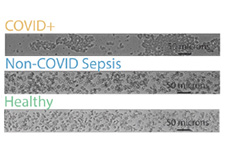 | | Discovery of key pathway for COVID-19 organ damage | Even after three years since the emergence of COVID-19, much remains unknown about how it causes severe disease, including the widespread organ damage beyond the lungs. Scientists are learning that organ dysfunction results from damage to the blood vessels, but why the virus causes this damage is unclear. A multidisciplinary team of Emory researchers has discovered what they believe is the key molecular pathway. Results of their study, published in Nature Communications, show that COVID-19 damages the cells lining the smallest blood vessels, choking off blood flow. These results could pave the way for new treatments to save lives at a time when hundreds of people are still dying from COVID-19 each day. Read more.
| | |
|
| |
| 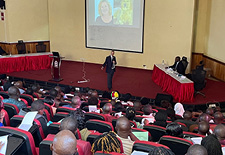 | | The science of love is helping to end a human rights violation | Hundreds of millions of females worldwide remain in danger of childhood marriage and female genital mutilation (FGM), a cultural procedure that causes extreme physical and psychological harm. Understanding relationships has been a scientific priority for Emory neuroendocrinologist Larry Young. When a 2019 email about FGM caught his attention, he knew he had to apply his scientific discoveries about pair bonding to help end the traumatizing practice. Young, a division chief at the university’s National Primate Research Center, is well-known for his research on the brain chemistry that underlies social bonding, including romantic relationships. He is pictured above presenting at an Emory-sponsored conference in Kenya. Read more.
| | |
| | | 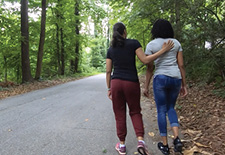 | | “Your Fantastic Mind” kicks off Season 4 with focus on teen mental health | A partnership between Emory and Georgia Public Broadcasting, the season premiere of “Your Fantastic Mind” addresses the crisis of adolescent mental health in America. “Your Fantastic Mind” reports on cutting-edge scientific and clinical breakthroughs in brain health. The news magazine-style show highlights compelling stories from patients and insights from top professionals across various medical disciplines including neurology, neurosurgery, psychiatry, rehabilitation medicine and sleep medicine. For more information or to stream full episodes from Season 4 and previous seasons, please visit the “Your Fantastic Mind” website.
| | |
|
| |
|  | | Helping clinicians choose between talk therapy and medications for depression | In two long-term, NIH-funded studies, Emory researchers are continuing to gain a deeper understanding into factors that help predict how well three first-line treatments work for adults diagnosed with major depressive disorder. The primary goal of the study, called PReDICT (Predictors of Remission in Depression to Individual and Combined Treatments), was to better predict which individuals with no history of clinical depression treatment improve with the use of either one of two antidepressant medications or with talk therapy, known as cognitive behavior therapy. Read more.
| | |
| | | 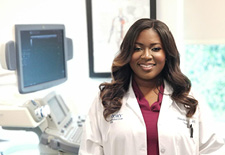 | | Examining quality of care for veterans with serious artery disease | New research led by Emory Healthcare, in partnership with the Veterans Health Administration, is shining a light on the need for better medical interventions and more aggressive treatment for veterans with peripheral artery disease (PAD), a serious condition found in 10 million U.S. individuals nationwide that is one of the leading causes of the 185,000 major lower extremity amputations that happen each year. In a study published in JAMA Surgery, lead author Olamide Alabi, a vascular surgeon who splits her time between Emory and the VA Atlanta Healthcare System, investigated ten years’ worth of health records from the US Department of Veteran Health Affairs. Read more.
| | |
|
| |
| 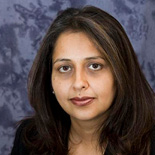 | | Lama joining SOM | Vibha Lama will join the SOM on May 1 as the Department of Medicine’s vice chair of research, the Augustus J. McKelvey Chair in Lung Transplantation Medicine, and the director of a new comprehensive lung disease program within the division of pulmonary, allergy, critical care and sleep medicine. Lama presently serves as Henry Sewall Research Professor in pulmonary and critical care medicine, and professor and vice chair of basic and translational research in the Department of Internal Medicine at the University of Michigan.
| | |
| | | 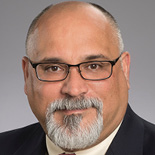 | | Kahn named neurology chair | Jaffar Khan has been named chair of the SOM’s Department of Neurology. Khan, a professor of neurology, has led the department as interim chair since May 2021. During his time at Emory, Khan has been a medical education leader, building teams and advocating for both faculty and student education. He established leadership roles in post-graduate medical education and served as director of the neurology residency and clinical neurophysiology fellowship training programs. Read more.
| | |
|
| |
| 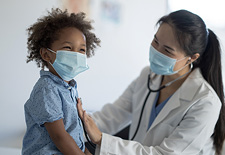 | | Lorlatinib is safe for patients with high-risk neuroblastoma | In a significant step for the treatment of neuroblastoma, an international group of researchers has shown that the targeted therapy lorlatinib is safe and effective in treating high-risk neuroblastoma, prompting a major amendment in a phase 3 Children’s Oncology Group clinical trial and a planned amendment to a European phase 3 trial. Kelly Goldsmith, associate professor of pediatrics at SOM and co-leader of Winship’s cancer immunology program, is lead author of the study recently published in Nature Medicine. Read more.
| | |
| | | 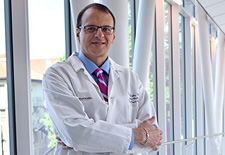 | | Combination therapy for head and neck squamous cell carcinoma looks promisingBrief 10 title goes here | A phase 2 clinical trial led by Winship shows a combination of two drugs was well tolerated and benefitted 91 percent of participating patients with recurrent/metastatic head and neck squamous cell carcinoma. The study, recently reported in Nature Medicine, was led by Nabil F. Saba, the Lynne and Howard Halpern Chair in Head and Neck Cancer Research, with colleagues from SOM’s Department of Hematology and Medical Oncology and Moffitt Cancer Center. Read more.
| | |
|
| |
| | April 27 | Biomedical Research Awareness Day hosted by the Emory Primate Center and the SOM Division of Animal Resources. The purpose of this annual event is to educate the Emory community about the importance of research with animals, the scientific advancements we are making to improve lives worldwide and the care we provide the university’s research animals. 10 am – 1 pm, Asbury Circle.
| | |
| | | | May 3 | Winship Cancer Institute at Emory Midtown Open House and Tour. 4:00 – 8:00 pm. 575 W. Peachtree St. NW. A free self-parking garage is onsite, but spaces are limited. Please consider using the Emory shuttle, MARTA or a rideshare service.
| | |
|
| |
|

